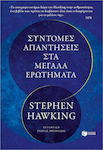Selected Store
Stock 20 pieces
Set the delivery location to see products according to your choice.

Selected Store
Stock 20 pieces

Scientific Books


Scientific Books







Scientific Books


Prices are calculated for:Luxembourg, Other Payment Options
The limit of a function, this fundamental concept that began to take shape from the time of Archimedes, is the central concept around which the field of Mathematical Analysis develops. It is well known to educators the difficulties students face in assimilating it to a satisfactory degree in order to understand the basic concepts of Differential and Integral Calculus and Differential Equations. Difference Equations, which achieve results analogous to those of Differential Equations, have the great advantage that their presentation does not presuppose the knowledge of the complex concept of a limit. Difference equations are developed in a simple and understandable way and do not require knowledge of specific mathematical concepts, except, of course, the elementary ones. For this reason, many mathematicians today believe that their teaching can begin even in Secondary Education.
It is particularly noted that the importance of Difference Equations is mainly due to the rapid development of Electronic Computers, which use mathematical models with exclusively discrete variables and not continuous ones.
It should also be noted that both Greek and foreign literature lack a comprehensive presentation of topics on Difference Equations. This book is expected to cover a significant part of this gap.
The book is divided into two parts. The first and most important part contains the theory of Difference Equations and the second the Special Functions for the derivation of which Difference Equations are used. At the end of each independent section, there is a summary of the theory for revision and consolidation of the concepts mentioned and a significant number of unsolved exercises with their answers.
In the structuring of the material, emphasis was given not to detailed theoretical proofs, but to the solution of many selected representative examples and applications, such as, for example, in Automatic Control and the Chaotic Theory of Discrete Systems.
Contents
Part One: Difference Equations
Chapter I. Linear difference equations
Introduction
Definitions. Existence
First-order linear difference equations
Applications
Higher-order linear difference equations
Homogeneous equations with constant coefficients
Non-homogeneous equations with constant coefficients
Applications
Chapter II. Linear equations with non-constant coefficients
The method of variation of parameters
Reduction of the order of a linear equation
Euler's difference equation
Chapter III. Non-linear difference equations
Special examples of non-linear difference equations
Functional difference equations
A characteristic value problem
Approximating differential equations with difference equations
Chapter IV. Systems of linear difference equations
Systems of linear difference equations with constant coefficients
Non-homogeneous linear systems
Z-transform
Non-autonomous systems of difference equations
Chapter V. General Applications of Difference Equations
Introduction
Controlled Systems
Observable Systems
Stability of Difference Equations
Stability of Systems of Linear Difference Equations
Difference Equations and Chaos
Part Two: Special Functions
Chapter I. Special Functions
Functions Defined by Generalized Integrals
Gamma Function
Beta Function
Functions Defined by Solutions of Differential Equations
Generating Function
Legendre Functions
The Sturm-Liouville Problem
Specifications are collected from official manufacturer websites. Please verify the specifications before proceeding with your final purchase. If you notice any problem you can report it here.